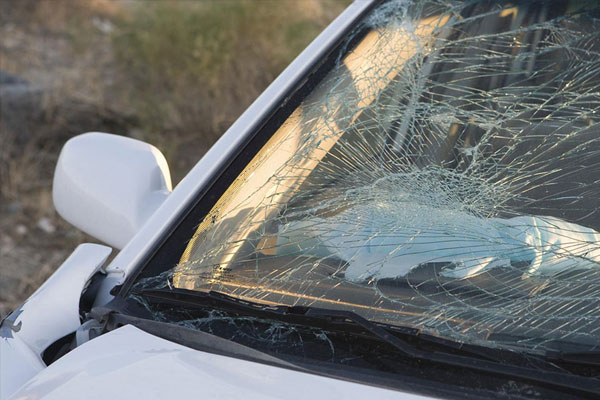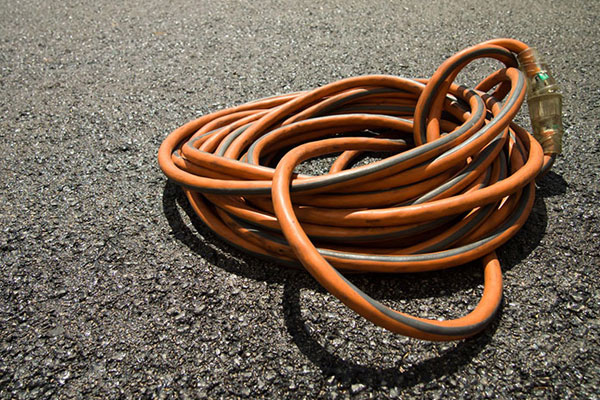The month of September was Suicide Prevention Awareness Month.
While we primarily focus on physical injuries and compensation here at the Law Offices of Robert E. Wisniewski, we also believe that it’s important to consider a worker’s mental health and well-being, too.
Experts suggest that, given the high-pressure working environment that the construction industry demands, construction workers are among the highest risk for suicide according to the Centers for Disease Control and Prevention.
According to statistics, there are on average 53.2 suicides per 100,000 construction workers. The stressful and dangerous nature of construction work may lead to this increased rate of suicides.
Other factors that might contribute to the increased rate amongst construction workers include:
- Having a ‘tough guy’ mentality
- Opioid dependency
- Remote working conditions
The strict deadlines that are required in the construction industry can lead to mental health issues when the threat of fines is possible. Furthermore, poor management and workplace complications can lead construction workers to be willing to jeopardize their own health by working longer hours at a quicker pace than they’d normally do in order to meet deadlines—all while staying within budget and exceeding quality expectations.
Another contributing factor is that the stress of working construction isn’t isolated, meaning it likely isn’t a single stress event that leads to mental health issues. It is prolonged exposure to stressors over a period of time that can lead a person to experience poor mental health.
Untreated chronic mental health issues can increase the likelihood of committing suicide.
Working in remote locations may also play a role in the higher risk of suicide in construction workers. Because there are typically many construction projects in a given area (especially in fast-growing Arizona cities like Chandler, Scottsdale and Tucson), working in the construction industry often requires laborers to travel for work. This means they spend long hours working and are removed from their support system—whether that is their family or friends.
Another factor that can contribute to mental health issues and suicide among construction workers is chronic pain. The Industrial Commission of Arizona (ICA), which handles workers’ compensation cases in Arizona, estimates that there are more than 100,000 workers statewide that receive some type of treatment for chronic pain. Being in constant pain can wear on a person’s mental state.
The demanding nature of the construction industry, coupled with the fact that construction ranks so high on the work hazard scale, suggests that a good number of construction workers deal with pain on a daily basis.
Construction work can be dangerous—so dangerous, in fact, that the construction industry consistently ranks among the most dangerous and deadly occupations. According to experts, construction workers are 77 times more likely to be injured on the job than workers in other industries. This high number of injuries leads those working in construction to have a higher likelihood of both being prescribed opioids, and consequently developing opioid dependency.
A Midwest Economic Policy Institute study concluded that high-injury rate professions place a worker at a higher chance of developing an opioid dependency if they’re prescribed an opioid. Additionally, this study also concluded that 15% of construction workers are currently battling some level of opioid addiction.
Why is opioid use relevant to suicide prevention awareness?
While prescription opioids are fantastic at eliminating pain, they are also highly addictive and can easily lead to overdose deaths.
What are the signs and symptoms of suicide risk?
According to Greg Sizemore, Vice President of Health Safety and Environment for Associated Builders and Contractors, while no individual or company is responsible when someone takes their own life, people should have the tools necessary to help prevent someone from committing suicide.
The best line of defense is to understand the early warning signs that someone is at risk of suicide, which include:
- Changes in behavior (i.e. acting agitated, anxious or reckless; extreme mood swings)
- New or worsening drug or alcohol use
- Discussing a feeling of being trapped
- A desire to be dead or feeling like they’re a burden
- Expressions of hopelessness
- Being depressed most of the time
- Becoming withdrawn from loved ones
- Excessive sleeping
Those struggling with mental health issues aren’t always easy to help—even less so when they’ve gotten to the point of suicide. This is why it’s important to be able to recognize the signs that someone is approaching being suicidal as early as possible.
While it can be difficult, connection and open conversation are among the best approaches for someone who is contemplating suicide. Rather than question their thoughts or dismiss them as a phase, you should acknowledge and accept that these feelings they’re having are valid and be an empathic ear that can help work through their feelings.
Get help from a mental health professional
For those who are contemplating suicide, there are several outlets to receive help. These include the National Suicide Prevention Lifeline, which can be reached at 800-273-8255—and the Crisis Text Line, which can be reached by texting TALK to 741-741.
Both Lifelines are available to those in a suicidal crisis 24/7.
Mental health and workers’ compensation
Mental health treatment coverage is possible under Arizona’s existing workers’ compensation system; however, there’s a catch.
ARS 23-1043.01 states that the mental health treatment is only covered by workers’ compensation in cases where the event (or events) leading to the need for mental health treatment is “extraordinary, unexpected and unusual” for the worker’s job. In other words, the event(s) leading to a person’s mental health issue would need to have been caused by something that was out of the normal for the person’s job.
Additionally, the law also stresses that the event must be the overwhelming cause of the worker’s mental illness.
In some cases, those working in Arizona can receive compensation for mental health conditions if they’ve received a diagnosis and treatment from a licensed mental health professional.
In addition to being treated by a professional, Arizona construction workers who feel as though their job has placed a strain on their mental health and want to find out if they can be compensated should follow all the standard workers’ compensation rules, such as reporting the issue to your employer and ensuring the case is filled out properly with the ICA.
For construction workers, it can be extremely difficult to prove that their mental illness was caused by a work-related incident or occupational stress and that there were no outside factors to contribute to their mental illness. This type of case can be challenging without the assistance of an experienced Arizona workers’ compensation lawyer who understands the specifics.



 Back Injury at Work
Back Injury at Work Shoulder Injury at Work
Shoulder Injury at Work Work-Related Car Accidents
Work-Related Car Accidents Electrical Accidents & Injuries
Electrical Accidents & Injuries Post Traumatic Stress Disorder
Post Traumatic Stress Disorder Slip, Trip & Fall Injury
Slip, Trip & Fall Injury